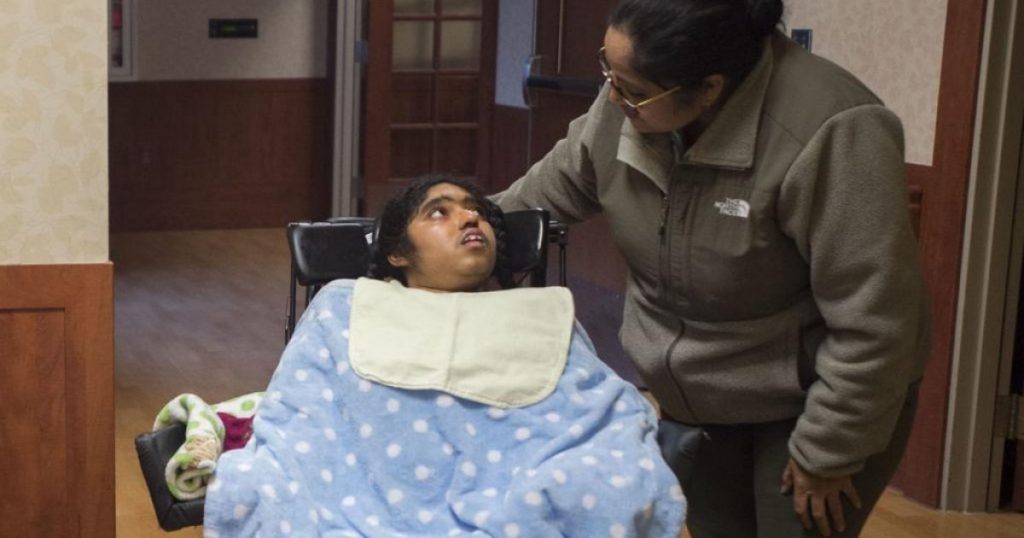Government Sued over Parents’ Rights To Maintain Quality Of Life For Disabled Daughter’s Care

LYNCHBURG, Va. — The Rutherford Institute has come to the defense of a Virginia couple’s right as parents to provide quality of life care to their disabled daughter, including an adherence to religious beliefs that impact her diet, hygiene, medical care, and an emphasis on organic, wholesome, personal experiences rather than those that are synthetic and machine-driven.
Rutherford Institute attorneys filed suit against the Commonwealth of Virginia, alleging that government officials are, for the sake of expediency, undermining the First Amendment rights of the Gupta family: 19-year-old Alisha, who suffers from a congenital brain defect that requires round-the-clock nursing care in a government facility and yet strives to exercise her Jain Hindu religious beliefs in a myriad of ways, and her parents, who have ordered their lives in such a way as to ensure that their daughter—despite her disability—is treated with dignity, compassion and humanity in accordance with their religious and cultural beliefs. In filing suit against government officials and the operators of Central Virginia Training Center (CVTC), Institute attorneys contend that state agencies have put into motion plans that will ultimately undermine the Gupta’s parental rights, Alisha’s quality of life and health, and her right to have her religious beliefs accommodated under federal and state statutes protecting religious freedom.
Affiliate attorney Bevin Alexander, Jr., of Freeman Dunn Alexander Gay Lucy & Coates is assisting with the lawsuit.
“This case is indicative of a draconian, expedient government mindset that views young people as wards of the state to do with as they will in defiance of their constitutional rights and those of their parents,” said constitutional attorney John W. Whitehead, president of The Rutherford Institute and author of Battlefield America: The War on the American People. “Yet the harm caused by attitudes and policies that treat young people as state vassals is not merely a short-term deprivation of individual rights. It also reflects the disconcerting view that civil liberties—including religious freedom—may be discarded at the caprice of government officials.”
Alisha Gupta was born in 2000 with a congenital brain defect that prevents her from speaking, swallowing or otherwise caring for herself. In 2003, Alisha became a resident and patient at CVTC, a state-operated institution for the care of the severely disabled, where she receives around-the-clock nursing care. Since her birth, Alisha’s parents have aided her in adhering to the religious beliefs and cultural traditions of Jain Hinduism, including a natural, organic lacto-vegetarian diet predicated on the belief that food is a divine gift from God. As such, the Guptas’ religious beliefs place great emphasis on natural and organic processes and hand feeding as opposed to synthetic foods and machine-driven, automated care feeding protocols.
Until recently, CVTC had worked with Alisha’s parents to accommodate her religious and cultural Jain Hindu beliefs. However, Rutherford Institute attorneys allege that Virginia, as part of a larger move to shutter CVTC and shift its patients to another care facility, has embarked on an expedient campaign that threatens to strip Alisha’s parents of their right to be consulted in her care, while subjecting Alisha to a synthetic, machine-automated diet that undermines the family’s religious and cultural beliefs in violation of the Religious Land Use and Institutionalized Persons Act (RLUIPA), a federal law that forbids imposing substantial burdens on the religious exercise of persons in state-run institutions, as well as the First Amendment’s guarantee to free exercise of religion and Virginia’s Religious Freedom Restoration Act.
The Rutherford Institute, a nonprofit civil liberties organization, defends individuals whose constitutional rights have been violated and educates the public about threats to their freedoms.
The complaint in Gupta v. Commonwealth of Virginia
Contributed by John W. Whitehead of The Rutherford Institute.
Constitutional attorney and author John W. Whitehead is founder and president of The Rutherford Institute. He is the author of A Government of Wolves: The Emerging American Police State and The Change Manifesto.

